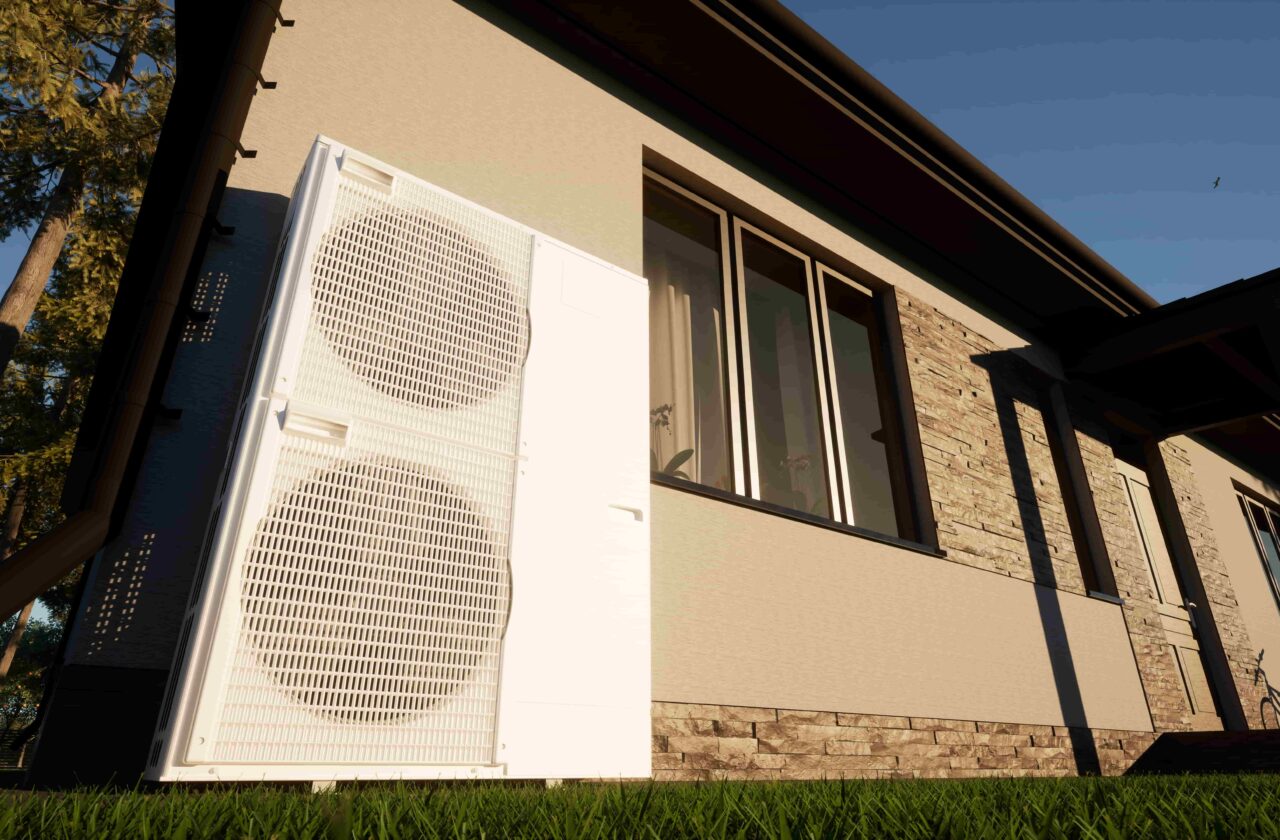Exploring the Benefits of Air-to-Water Heat Pumps

In the quest for energy efficiency and sustainable living, air-to-water heat pumps have emerged as a popular solution for heating and cooling homes. These systems harness the ambient air to provide both heating and cooling, offering an environmentally friendly and cost-effective alternative to traditional HVAC systems. Let’s delve into the workings, benefits, and considerations of air-to-water heat pumps.
How Air-to-Water Heat Pumps Work
Õhk vesi soojuspump function by extracting heat from the outside air and transferring it to water, which can then be used for heating purposes in homes. Here’s a simplified breakdown of the process:
- Heat Absorption: The outdoor unit of the heat pump absorbs heat from the surrounding air, even in cold temperatures.
- Heat Transfer: This heat is then transferred to a refrigerant, which is compressed to increase its temperature.
- Heat Distribution: The heated refrigerant transfers its energy to water, which is then circulated through radiators, underfloor heating systems, or used to heat domestic hot water.
- Cooling Capability: In warmer months, the process can be reversed to provide cooling by extracting heat from the indoor air and releasing it outside.
Key Benefits of Air-to-Water Heat Pumps
- Energy Efficiency: Air-to-water heat pumps are highly energy-efficient, often achieving a coefficient of performance (COP) of 3 to 4, meaning they produce 3 to 4 units of heat for every unit of electricity consumed.
- Environmental Impact: By utilizing renewable energy from the air, these systems reduce reliance on fossil fuels, thus lowering greenhouse gas emissions and promoting a greener environment.
- Cost Savings: Although the initial investment can be higher than traditional systems, the long-term savings on energy bills make air-to-water heat pumps a financially smart choice. Many regions also offer incentives and rebates to encourage the adoption of renewable energy systems.
- Versatility: These heat pumps can be integrated with various heating systems, including radiators, underfloor heating, and hot water tanks, providing flexibility in installation and application.
- Year-Round Comfort: Offering both heating and cooling capabilities, air-to-water heat pumps ensure comfortable indoor temperatures throughout the year, adapting to seasonal changes effortlessly.
Considerations and Challenges
While air-to-water heat pumps offer numerous benefits, there are several factors to consider before installation:
- Climate Suitability: Although modern heat pumps can operate efficiently in colder climates, their performance may decline in extremely low temperatures, necessitating a backup heating system.
- Installation Costs: The upfront costs for purchasing and installing an air-to-water heat pump can be significant. However, these costs are often offset by long-term savings and available subsidies.
- Space Requirements: The installation of an outdoor unit requires adequate space and proper placement to ensure efficient operation and minimal noise disturbance.
- Maintenance: Regular maintenance is essential to ensure the longevity and efficiency of the system. This includes routine checks, cleaning filters, and servicing by qualified professionals.
Conclusion
Air-to-water heat pumps represent a forward-thinking approach to home heating and cooling, offering substantial benefits in terms of energy efficiency, environmental impact, and cost savings. As technology advances and awareness of sustainable living grows, these systems are likely to become a standard feature in modern homes. If you’re considering an upgrade to your heating and cooling system, exploring air-to-water heat pumps could be a worthwhile investment for both your home and the planet. Read more from: https://ohk-vesi-soojuspump.ee/

